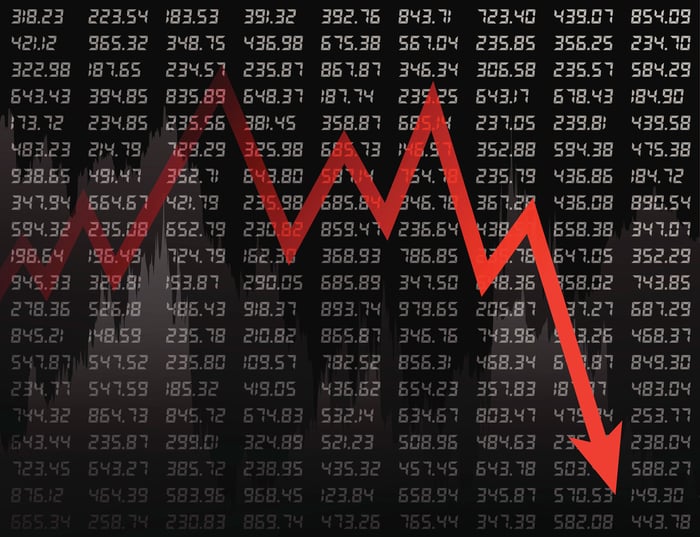What happened
The month of July should have been a great one for investors in Virgin Galactic (SPCE -1.56%) stock -- and for a few glorious days, it was. Indeed, the first week of last month saw Virgin Galactic stock gain 14.5% in the run-up to Sir Richard Branson's historic first flight to space aboard Virgin's VSS Unity spaceplane.
And yet, no sooner had Sir Richard landed back on Earth -- indeed, the day before he even took flight -- the gains had already begun evaporating. By the time the month was done, Virgin Galactic stock had lost all its gains, and ended the month with a 34.8% loss.

Image source: Getty Images.
So what
How did it all go so wrong? Well, Virgin Galactic itself bears part of the blame for this. VSS Unity had hardly been parked back in its hangar before Virgin Galactic rushed to capitalize on the flight's success, announcing a plan to sell $500 million worth of new stock (which works out to about 6.5% stock dilution at the stock's current market capitalization).
On the one hand, investors don't often appreciate seeing management dilute their stake in a company they own like this. On the other hand, the share offering emphasized a point: Virgin Galactic didn't carry any paying passengers on its July 11 flight, and didn't generate any revenue for the company. And yet, Virgin Galactic still needs cash to fund "capital expenditures for its manufacturing capabilities, development of its spaceship fleet, and other infrastructure improvements."
Now what
Until it gets that cash, Virgin Galactic stock remains vulnerable to shifts in sentiment about its prospects. Speaking of which, just nine days after VSS Unity landed, the entire company's prospects got a bit dimmer when Blue Origin -- Virgin Galactic's archrival in space tourism -- launched and landed its own New Shepard rocket.
Unlike Virgin Galactic, Blue Origin's spacecraft did carry at least one paying passenger aboard. And unlike Virgin Galactic, which despite its successful spaceflight is still technically in the "test flight" stage of its development and won't begin flying commercially before 2022, Blue Origin believes it's ready to begin commercial operations already. Indeed, Blue Origin plans to fly at least a couple more paid spaceflights this year.
The greater the lead Blue Origin attains over its rival, the worse the prospects get for Virgin Galactic stock.





